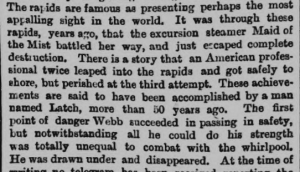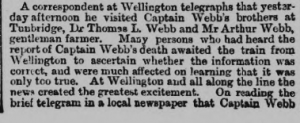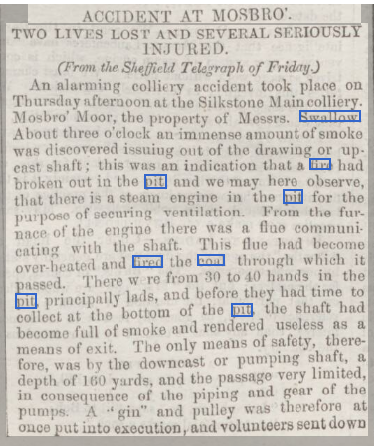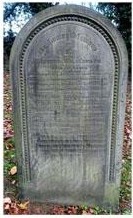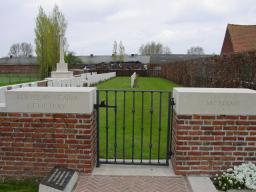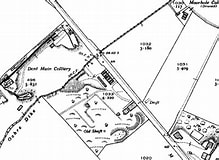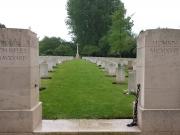NEW Y
ORK, July 25. Captain Webb, the well-known swimmer, was drowned yesterday in his attempt swim through the whirlpool and rapids of Niagara Falls.
Captain Webb left the Canada side of Niagara below the falls in small boat and rowed to a point about yards above the old Suspension Bridge. He dived into the river at four o’clock in the afternoon, and on entering the rapids was almost turned over by the force of the water. He swam the rapids, however, with great determination, being now and again caught sight of by a few of the spectators. When last seen he was entering the whirlpool, and at first appeared be doing well but very shortly afterwards threw up his arms and disappeared, He was not seen again.
Captain Webb was strongly urged not to attempt a feat universally declared be impossible. In the course of an interview which Captain Webb had with representative of the New York Herald, I had given particulars of the perilous feat which proposed accomplish in endeavouring swim the Whirlpool Rapids below Niagara Falls.
” Yes,” he said… ” I going to swim the Whirlpool Rapids and will say that it is about the angriest bit of water in the world. I came over from England two weeks ago (this would be about the be
ginning of June) to make the trial, and I went to the rapids last week, and I made a critical examination. They are rough, I tell you, and the Whirlpool is a grand one; but I think I am strong enough and skilled enough to get through alive. The people at Niagara Falls tell me that I will be simply committing suicide. You ought to hear the blood-curdling stories retailed for my benefit.
A year or two ago a boy who was around the shore water was drawn in the rapids and his head cut off. A girl fell into the river last summer from the Suspension Bridge, and then her dead body was picked up at the other end of the rapids.
It was bereft of all clothing but pair of stockings. In twenty-three years, they say that eighty persons have lost their lives the rapids.”But what is your object in attempting such a terrible feat?”
“Ten thousand dollars.” “How you propose to pass through the rapids?”.
“I’ll explain my plan. The current, they say, is thirty-nine miles an hour, and the river is ninety-five feet deep. It is wide just below the falls and narrows at the rapids. I am only afraid of two awful ledges of pointed rocks which jut out from the shores into the whirlpool. The water fairly shrieks and hisses as it boils over them.
Now I want to avoid the sides, and yet I dare not go into the middle, for there lies the vortex, and that means death. I will out into the middle of the river in a small boat, just about the Suspension Bridge. The only clothing, I shall wear will be the silk trunks I had on when I swam the English Channel. At the time appointed I will leap into the river and float into the rapids. Of course, I will make attempt to go, for the fearful speed of the water will carry me through. When the water gets very bad, I will go under the surface and remain beneath until I compelled to come for breath. That will be pretty often, I will wager.
When I strike the whirlpool, I will strike out with all my strength, and try keep away from the suck hole in the centre. I will begin with the breast strokes, and then use over hand strokes. My life will depend upon my muscle and my breath with a little touch of science behind them. It may take me two or three hours to get out of the whirlpool, which is about quarter of mile long. When I do get through, I will try land on the Canadian side, but if the current is too swift, as I think it is, I will keep down to Lewiston, on the American side.”
It was expected that the feat would be performed on July 21st, but it was subsequently arranged that Captain Webb should endeavour accomplish his purpose on the 24th.
The various railway companies which ran to Niagara Falls subscribed 10,000 dollars for Captain Webb, and it was expected that 100,000 persons would witness the underta
king, preparations having been made to have special excursions from every town and city within reach of the railways.
Captain Webb was born in Shropshire and was the son of a physician. He took to the sea early and became the captain of a merchantman. Many years ago he jumped from the deck of the Cunard mail steamer Russia during a storm, to save a sailor who fell over-board; and for this act he received from the bands of the Duke of Edinburgh the first gold medal ever given by the Royal Humane Society.
So daring was Webb as a ship captain that it is stated could never get crew to go sea with him second time.
After his swim across the Channel the 24th Regiment, which was afterwards almost annihilated in Zululand, gave him a Burmese cup, taken in battle. He had trunk full of decorations and trophies.
His last appearance in England was at swimming match at the Royal Aquarium, when was defeated by young Beckwith.
The rapids through which Captain Webb endeavoured to swim yesterday are situated below the Niagra Falls and from the upper part of the Niagra River, which empties into the Lake Ontario. The waters, after rolling over the falls, enter a narrow gorge through which they rush with fearful rapidity. It was down this seething torrent that Captain Webb endeavoured to swim, and to those who knew the hidden rocks, the terrible eddies and whirlpools which abound in the gorge, the venture of the notorious swimmer appeared foolhardy to a degree. The gorge at one portion arrows to about 200 ft, and here the foaming flood is particularly violent in dashing against the rocky sides on either shore. The rapids altogether are about five miles length.
On August 25th, 1875, Captain Webb became famous by swimming across the English Channel from Dover to Calais. This feat greatly excited the popular mind, and never perhaps since the time of Tom Sayers had any physical achievement been highly lauded. Captain Webb’s name was familiar everywhere, his exploits were on every tongue, and his praises were written in every newspaper.
On the London Stock Exchange and in society generally Webb was received as her a hero and whether or not Professor Cavill afterwards fairly accomplished the same swim in less time, the feat performed by Captain Webb was one of the most arduous and justly celebrated history. There can be no doubt that would have been better if Webb had been content to stop here and continue his career as captain of a merchant vessel. As it was, he chose to do a lot of exhibition swimming, and engaged in professional matches with varying success. Public favour had almost entirely deserted him when in the spring of this year he was for the second time beaten by Willie Beckwith at Westminster Aquarium.
On this occasion he left the water suffering from congestion of the lungs and spitting of blood, and it is probable that most people thought they had seen the last of Captain Webb as a public character. He however, formed the idea ongoing out to America and attempting to swim’ through the rapids below Niagara Falls. Webb is said to have done all he could to test the strength of the current and to ascertain the least difficult way of getting through the broken water.
The rapids are famous presenting perhaps the most appalling sight in the world. It was through these rapids, years ago, that the excursion steamer Maid of the Mist battled her way, and just escaped complete destruction.
There is story that an American professional twice leaped into the rapids and got safely to the shore but perished at the third attempt. These achievements are said to have been accomplished by a man named Latch, more than 50 years ago. The first point of danger Webb succeeded in passing in safety, but notwithstanding all he could do his strength was totally unequal combat with the whirlpool. He was drawn under and disappeared.
At the time of writing a telegram has been received reporting the recovery of the unfortunate man’s body, and there is of course no knowing at what point on its banks the wild river will deposit poor Webb’s remains. It has been an open secret London for some time past that since his last defeat by Beckwith Webb was very poor in health and pocket, his lungs were seriously affected, and was in nothing like the physical condition for undertaking a task of far less magnitude than that which proved fatal to him. He had been repeatedly warned that his enterprise was foolhardy and hopeless, and the force of these warnings must have been borne in upon him when he was being tossed about helplessly in Niagara rapids which have proved his grave.
The fame of Captain Webb’s achievement is assured, and its recollection will be mingled with pity for the man who whatever may have been his motives had the magnificent courage calmly to face death in a most terrible shape. Captain We was for two years on the training ship, Conway in the Mersey and was the recipient of a silver pencil case as a member of the boat’s crew who saved a fellow pupil from drowning.
Considerable sensation was caused Shrewsbury yesterday by the painful news of Captain Webb s death, as was native of Shropshire, having been born at Ironbridge, where his brother and sisters present reside. He was married about three years ago and leaves a widow and one child. It is related that when Captain Webb was honoured with numerous presentations the chief point of his response was that though Latin and Greek might be useful, yet that sort of study never taught a man to save his life or that of any one else like the art of swimming did. He therefore advised all to learn to swim.
A correspondent at Wellington telegraphs that yesterday afternoon he visited Captain Webb’s brothers at Tunbridge, Thomas L. Webb and Mr Arthur Webb, gentleman farmer. Many persons who had heard the report of Captain Webb’s death awaited the train from Wellington ascertain whether the information was correct and were much affected on learning that was only too true. At Wellington and all along the line the news created the greater excitement.
On reading the brief telegram in a local newspaper that Captain Webb was drowned, several persons were moved to tears. Dr Webb, on arriving home, was naturally greatly grieved the sad news, which he had only heard about eight pm. He was dee
ply touched by the numerous inquiries and expressions of regret and sympathy made by people in the town. He knew nothing whatever about what his brother was doing in America further than what was stated in the newspapers, and was greatly grieved, though not surprised, when he learned that his brother proposed attempting this hazardous feat knowing his brother’s disposition as lie did, was satisfied he would not be deterred from making the attempt what anyone would say. A man who had the pluck and determination to swim the Channel, and having the iron will of his brother was not one to stick at a trifle, and the sad news yesterday was only such as they had too often feared to receive. The doctor gave some particulars of Captain Webb’s doings since the Channel swim. After that feat he appeared content with his success, lecturing upon swimming, minor swimming feats, opening of baths, giving prizes, &c., for swimming, lecturing schools, and he was also particular devoted to inventing what he termed improved means of locomotion. patented a very ingenious kind of bicycle, a swimming machine and a propeller on the screw principle, and had got ideas of a flying machine, but nothing gave him so pleasure doing something to promote swimming, and often talked about doing another big swimming feat, and told Dr Webb he thought of doing a big thing America.
The Americans were more enthusiastic than the English and he said and frequently had letters from friends in America pressing him to over there and do something of an eclipsing character. When Dr Webb heard of his brother’s illness after swimming at Lambeth, he wrote seriously warning him, but Captain Webb did not write again on the subject. Several times he said he should try to swim to Ireland. It was incorrectly reported that his first life-saving feat was on board the Conway.
At a very early age be saved one of his brothers who was bathing. Possibly may have secured, in the event of death, the money promised for attempting Niagara; and at all events, his relatives hoped to see his wife and two children receive the ten thousand dollars from the railway companies.
BNA c Yorkshire Post and Leeds Intelligencer – Thursday 26 July 1883

